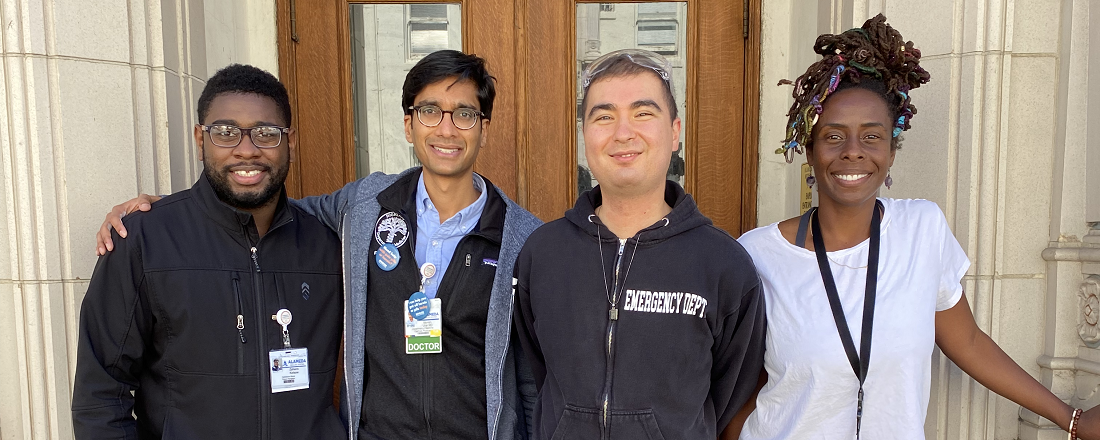
Update
New Funding to Support Hospitals in Addressing Substance Use Disorders, Mental Health
-
Focus Areas
Alcohol, Tobacco, Drugs & Mental Health, Health Care & Population Health, Healthy Communities -
Issues
Alcohol, Mental Health -
Expertise
Technical Assistance -
Programs
CA Bridge -
Strategic Initiatives
Opioids

PHI’s CA Bridge Program has received $40 million in new funding from the California Department of Health Care Services to administer the CalBridge Behavioral Health Navigator Program to provide support to hospitals and emergency departments to hire patient navigators and become primary access points for the treatment of substance use disorders and co-occurring mental health conditions.
Hospitals participating in the Bridge Navigator Program will be able to address substance use disorders as a treatable medical emergency and utilize trained navigators to identify patients who can benefit from initiating medication for addiction treatment or mental health services. Through this program, the Department of Health Care Services aims to make treatment of substance use and mental health conditions the standard of care in all California emergency departments.
Learn more & Apply
Final Round of Applications Due December 15th
Due to high demand, there will be only one more round of applications for the CalBridge Behavioral Health Navigator Program (Bridge Navigator Program). Funding is available for an additional 42 hospitals, and the final deadline is December 15th. Applications will be processed on a rolling basis, so we encourage hospitals to apply as soon as possible.
The Bridge Navigator Program will support hospital emergency departments to:
- Hire or maintain an emergency department-based navigator
- Identify, screen, interview, and link patients with substance use disorder and co-occurring mental health conditions to appropriate treatment
- Educate providers about medication for addiction treatment
- Build a stigma-free environment that welcomes disclosure of substance use and
provides rapid, evidence-based treatment - Navigate patients with co-occurring mental health conditions to outpatient
treatment
PHI’s CA Bridge will provide all participating hospitals with access to materials, training, and technical assistance for navigators, clinicians, nurses, and other hospital staff and stakeholders.
Key deliverables and deadlines
The deliverables and deadlines are listed in the RFA. See Bridge Navigator Program Request for Applications (RFA) for all information.
Learn More: CA Bridge
PHI’s CA Bridge works to transform addiction treatment by ensuring that every hospital in California provides 24/7 access to evidence-based care, treating substance use disorder like any other life-threatening condition. CA Bridge provides training, technical assistance, and coaching so that hospitals may take on a critical role in solving the overdose crisis. Learn more.
More Updates
Work With Us
You change the world. We do the rest. Explore fiscal sponsorship at PHI.
Support Us
Together, we can accelerate our response to public health’s most critical issues.
Find Employment
Begin your career at the Public Health Institute.



